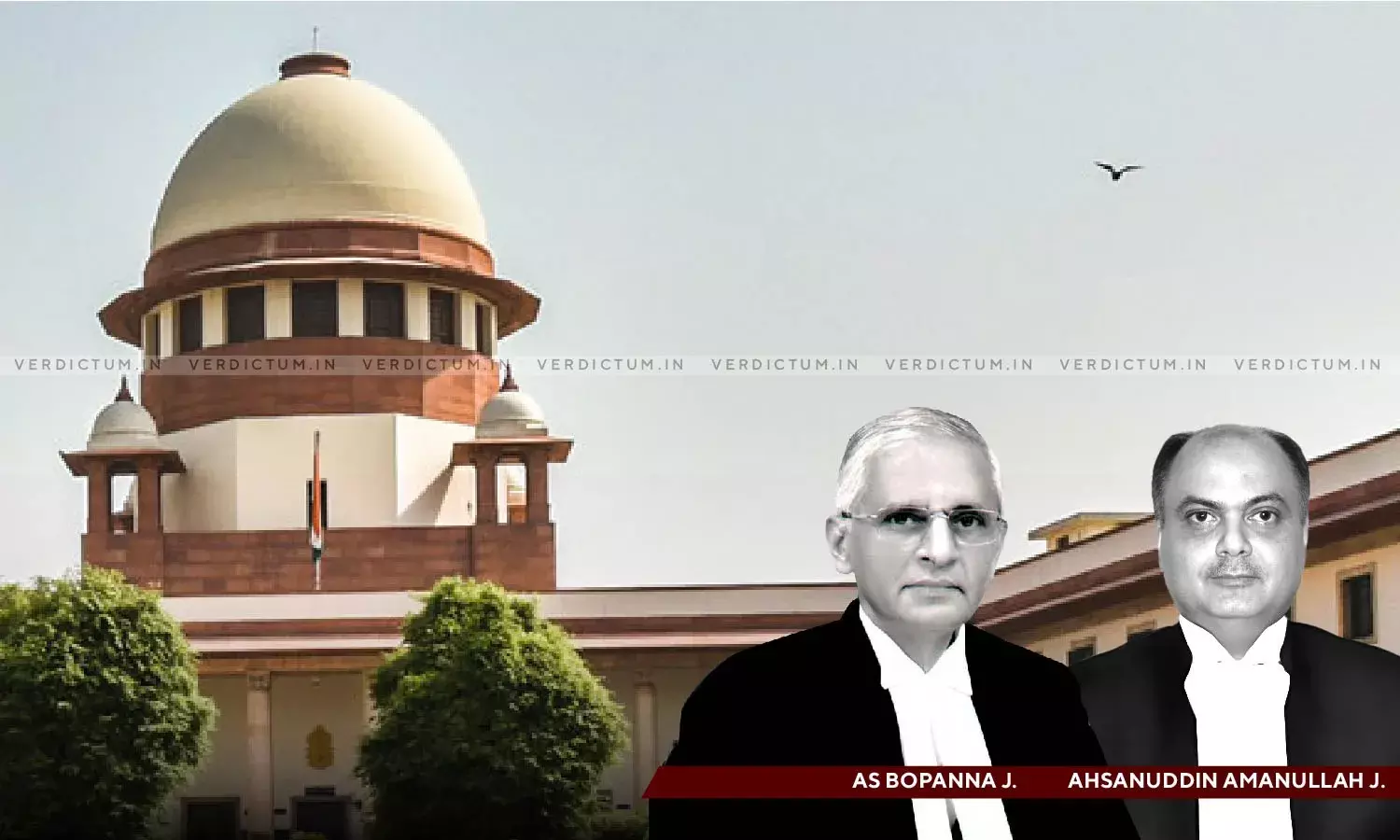NDPS Act | Supreme Court Refuses To Allow Plea By Accused Seeking Transfer Of Investigation To CBI

The Supreme Court recently rejected the appeal preferred by a man who was detained for indulging in the sale of psychotropic substances under the Narcotic Drugs and Psychotropic Substances Act (NDPS Act).
The accused in this matter had earlier prayed before the High Court to direct for investigation under the supervision of the Court by the Central Bureau of Investigation (CBI).
The two-Judge Bench of Justice A.S. Bopanna and Justice Ahsanuddin Amanullah held, “… though there is no inflexible guideline or a straightjacket formula laid down, the power to transfer the investigation is an extraordinary power. It is to be used very sparingly and in an exceptional circumstance where the Court on appreciating the facts and circumstance arrives at the conclusion that there is no other option of securing a fair trial without the intervention and investigation by the CBI or such other specialized investigating agency which has the expertise.”
The Bench found that there was no issue of public importance that required to be unearthed by an investigation to be conducted by the CBI.
Senior Advocates Shyam Divan and Gopal Sankaranarayanan represented the appellants while ASG Vikramjeet Banerjee and Senior Advocate Abhishek Manu Singhvi represented the State.
In this case, the charges were framed against the accused under Section 29 read with Sections 22(b), 22(c), 25, and 27 of the NDPS Act, which was not interfered by the High Court. He was accused of indulging in the sale of psychotropic NDPS substances, due to which the prosecuting registered the FIRs.
The accused claimed to be a qualified automobile engineer and a businessman carrying on the business of logistics, transportation, renting out vehicles, etc. for the last 36 years. One night, four unknown persons visited a hotel where the accused was staying and impersonated themselves as police officers. They abducted the accused and took him into the car and thereafter kept in the lockup throughout the night without disclosing the reasons for such action.
The Supreme Court after hearing the contentions of the counsel for both parties noted, “… even though it is contended that the CCTV footage would be relevant to establish the presence of the said four persons in the hotel at Odisha and the same has not been seized by the police, the fact remains that even from the same what is sought to be established is that the said four persons had abducted the appellant No.1.”
The Court further noted that during the trial, the five persons specified by the accused would now be available to be cross-examined and any other orders in that regard can be sought in the pending proceedings.
“… the appellant No.1 would be entitled to put forth his case when the statement under Section 313 of CrPC is recorded and also he would be entitled to tender evidence if necessary”, said the Court.
The Court asserted that the case of the appellant was clear and that there are matters which could be established through the evidence in the trial before the competent court in the judicial proceedings wherein all such matters would be appreciated and a conclusion would be reached.
“… the appellants in any event would have the further remedy of the legal course which is available to them if they are dissatisfied. … the appellants would still have the legal remedy to take action for malicious prosecution, loss of reputation, action against involved persons, compensation and for such other relief …”, observed the Court.
The Court was not convinced to direct the CBI to hold an investigation as the same was not justified and therefore, it left open all the contentions to be urged before the Trial Court.
Accordingly, the Apex Court refused to interfere with orders and dismissed the appeal.
Cause Title- Royden Harold Buthello & Anr. v. State of Chhattisgarh & Ors.
Click here to read/download the Judgment


